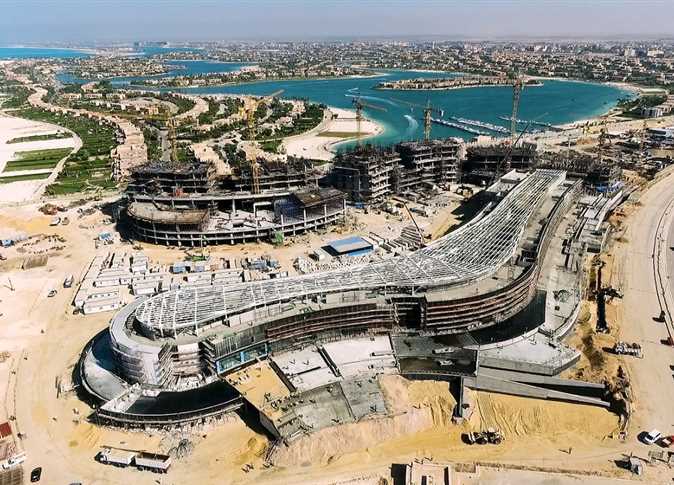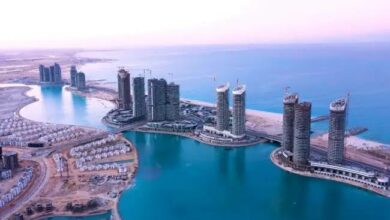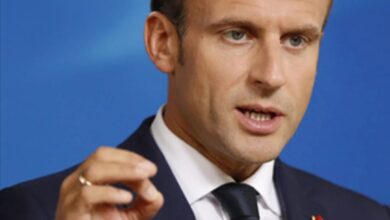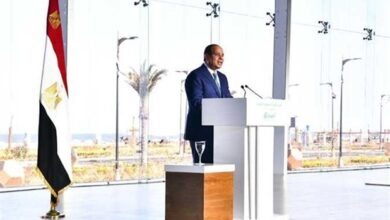The Anna Lindh Foundation, an organization dedicated to promoting dialogue between cultures in the Mediterranean Basin, held its first festival this weekend at the historic Qaitbay citadel in Alexandria. The festival, called Farah el-Bahr, featured music, dancing, and food from around the Mediterranean. It was a great success.
Al-Masry Al-Youm English Edition spoke with Andreu Claret, the executive director of the Anna Lindh Foundation, about Euro-Mediterranean cooperation, the future of the festival, and his goals for the foundation.
Al-Masry Al-Youm English Edition: What inspired the organization of this first Euro-Mediterranean festival, Farah el-Bahr? And what was the budget allocated to this event?
Andreu Claret: We noticed that even though our head office has been in Alexandria for the past four years, some people still don’t get a clear image of the role of our foundation. The foundation holds inter-cultural dialogues among civil society bodies in the Mediterranean basin. Such activities revolve around raising awareness on various topics ranging from illiteracy to women issues. This is why organizing such an event can help to clarify our role, which is enhancing cultural dialogue between the 43 countries that belong to the Euro-Mediterranean Union. Three thousand people visited the Qaitbay fortress on the first day on the festival, and seeing people’s interest in this cultural event convinced us to organize it every year. Eventually we hope that this festival will become “the” festival in Alexandria which will contribute to the prestige of the city within the Mediterranean basin. Concerning the budget allocated to the Festival, we had 30,000 Euros for first festival but we plan to increase that for the next one.
Al-Masry: We can deduce from the leaflet describing the two-day program of the festival that performers from Palestine, Greece and Armenia were invited to participate to this cultural event. Is that so?
Claret: No, for this event we had to rely on local performers belonging to foreign communities living in Egypt. But we certainly want to invite artists from foreign countries for our next festival.
Al-Masry: Israel is part of the Euro-Mediterranean Union. Do you plan to invite Israeli artists, let’s say, for the next Farah el-Bahr?
Claret: What people need to understand is that our foundation deals with civil societies all over the Mediterranean space, which includes Israel. We are not a political institution and as such, we do not represent the states. But there is a geographical necessity that pushes the direction of an overall cooperation, and the civil societies that work with us share the foundation’s values of openness and dialogue. But the specific dialogue between the Arabs and the Israelis is obviously very limited, and we are well aware of those limitations. We are trying to do what we can to bring Israeli and Arab civil societies to work together. So inviting Israeli performers to our next event will very much depend on the political situation in the coming months.
Al-Masry: As the executive director of the Anna Lindh Foundation, would you say that the balance sheet is positive?
Claret: It definitely works better than it used to and I’m not saying this because I’m the foundation’s director. The foundation has recruited a lot lately and we now have 28 people working in our Alexandria office. Also I would like to insist on the fact that our network of civil societies kept on working in Palestine and Israel after the war in Gaza, which led to the freezing of all the other Euro-Med institutions for nearly five months. To continue working has been a gamble but our project called “Restore Trust, Rebuild Bridges,” in collaboration with the UN, never stopped.
Al-Masry: The Anna Lindh Foundation has to cope with a restricted budget of 14 million Euros for three years, allocated by the European Commission and the 43 Euro-Med members. Do you plan on restraining this huge network in order to allocate more money to each member?
Claret: This is not part of our plan, as this extensive network of 2000 organizations of civil society is the raison d’être of the Anna Lindh Foundation. It gives us our uniqueness. Obviously the budget allocated to certain fields will have to be reduced, but I doubt that we will let it affect the networks because they are the most important element of the foundation. Egypt’s civil society is in the process of organizing itself. It is one of the most important networks within foundation and we want it to continue developing.
Al-Masry: How is the Anna Lindh Foundation organized and who coordinates the civil societies’ network between the 43 countries?
Claret: The civil societies belonging to each of the 43 member countries are coordinated by an institution that is often nominated by the government, like in Egypt, or elected by the network itself. This organization coordinates the projects and we back it with some financial and logistic help. A meeting between the 43 coordinators will be held in Sweden on 7 November.
Al-Masry: The Anna Lindh Foundation has been tasked with issuing a report on the cultural trends within the Euro-Med Union. Is this underway?
Claret: Definitely, the first edition of the biennial 240-page report will be finalized in April 2010. Each report will have two parts: The first one will scrutinize the big trends as far as intercultural dialogue is concerned. We asked Gallup to track and identify those major trends through opinion polls. This survey has been run in 13 Euro-Med countries that are very representative of the Union, and, of course, Egypt is part of this survey. We will then ask analysts from the 43 countries to draw conclusions and we will use this material to decide in which fields we need to intensify our work. The second part of the report will change every time and will focus on a major subject related to intercultural dialogue. The first edition focuses on the media and 20 experts are researching its role related to the cultural dialogue in their countries. This research will be processed within and between countries. This report will be available for consultation on our website in April 2010.




